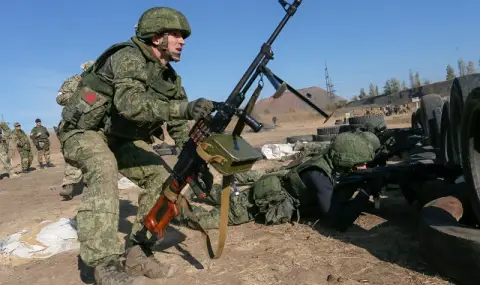Russian troops continue counterattacks in the area of the Ukrainian incursion into Kursk Oblast, but as of September 12 they were achieving only minimal success, possibly due to ongoing Ukrainian offensive operations and defensive counterattacks in the area, the Institute for the Study of War (ISW) daily report said.
According to geolocated footage, Russian forces have made small advances west of the village of Vishnevka and north of Krasnooktyabrskoe. Russia's defense ministry said it had regained control of 10 villages in the south and southwest of the region around Korenevo, but this has not been confirmed by independent sources. Ukrainian forces continue counterattacks and make progress in areas where Russian forces have launched an offensive.
Ukrainian troops have crossed the border and entered the southwestern part of the village of Tetkino, bypassing the Russian obstacles in the area. Russian sources claim that Ukrainian attacks continue near villages such as Novy Put and Medvezhye. Russia has made some progress in areas not under full Ukrainian control, but is likely to encounter greater difficulty in attacking better-prepared Ukrainian positions.
Ukrainian HIMARS missile strikes damaged a temporary pontoon bridge over the Seym River as well as Russian troops preparing to attack. Russia also has additional units of the 106th Airborne Division in Kursk Oblast.
Britain has given Ukraine the green light to use Storm Shadow missiles to attack Russian military targets, with the decision expected to be officially announced after a meeting between US President Joe Biden and British Prime Minister Keir Starmer on September 13.
Russia is stepping up efforts to strengthen ties with non-Western countries at a high-level meeting of BRICS security officials in St. Petersburg. On September 12, Russian President Vladimir Putin met with representatives of China, India and Iran to discuss bilateral relations and promote Russia's chairmanship of BRICS, as well as the organization's upcoming October summit in Kazan, Tatarstan.
According to the Russian news agency TASS, Putin met with Chinese Foreign Minister Wang Yi, who confirmed the participation of Chinese President Xi Jinping at the BRICS summit. Putin also met with Indian National Security Adviser Ajit Doval, with whom he discussed India's offer for peace in Ukraine and the possibility of a meeting with Indian Prime Minister Narendra Modi. In addition, Putin spoke with the Iranian Secretary of the Supreme National Security Council, Ali Akbar Ahmadian, about the deepening of relations between Russia and Iran and the signing of an interstate agreement at a strategic level.
These meetings highlight Russia's attempts to strengthen diplomatic ties with non-Western countries such as China, India and Iran, and secure support in the context of the war in Ukraine and international sanctions. The strengthening of Russian-Iranian relations is particularly important, with the two countries discussing projects such as the north-south corridor that runs through the South Caucasus.
In addition, Russia and Iran remain at odds over the Zangezur Corridor project, which connects Azerbaijan to Nakhchivan through Armenian territory. Iran opposes this project. However, Russia supports the project, and the positions of the two countries on this matter remain opposite.
